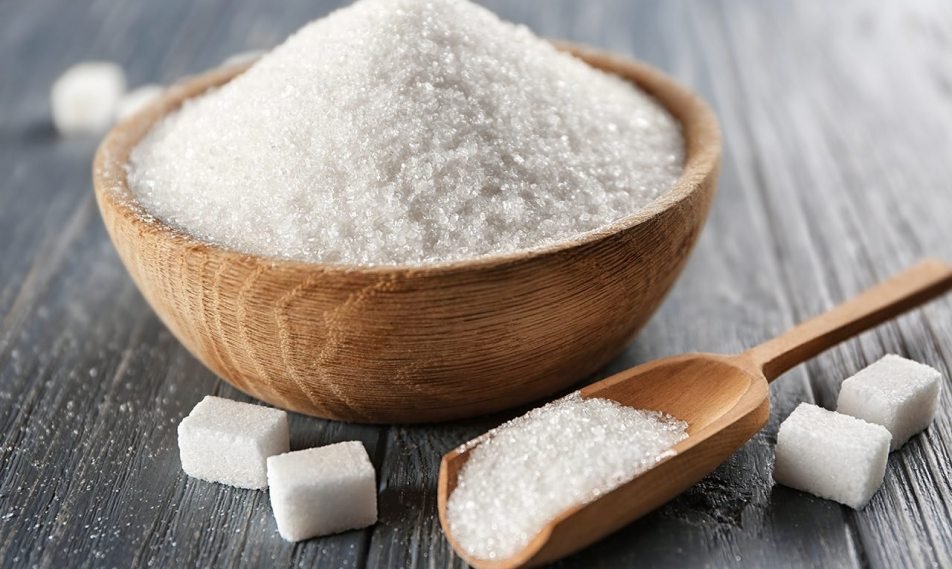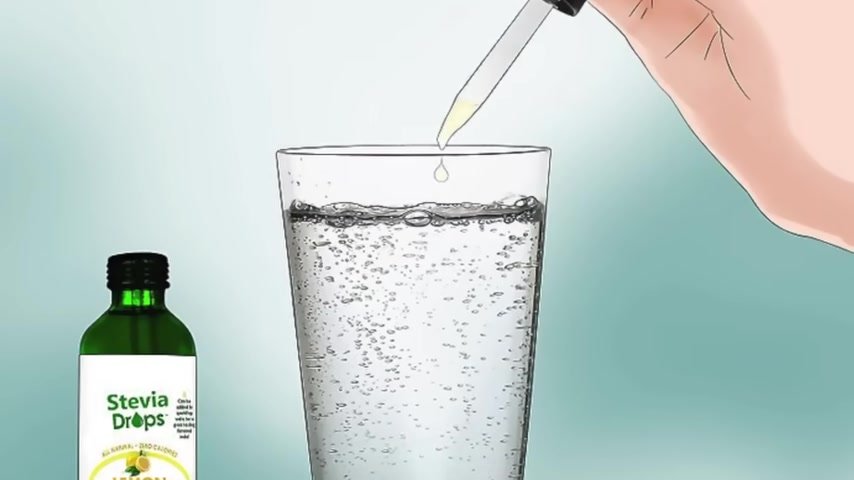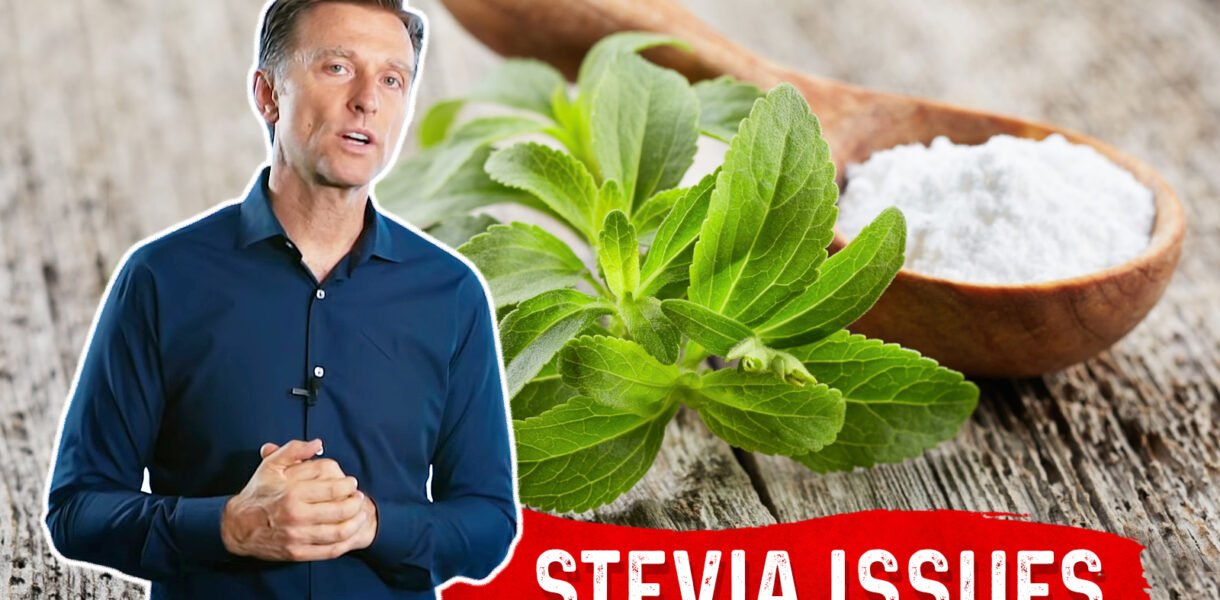Table of Contents
Is Stevia really the healthy sweetener it’s hyped up to be? Learn about the hidden ingredients, processing issues, and potential side effects of popular Stevia brands. Discover Dr. Berg’s recommendations for choosing a healthier alternative.
Stevia has become a popular choice for people looking for a natural, low-calorie sweetener. But is it all it’s cracked up to be? While Stevia itself can be a healthy option, many brands on the market contain hidden ingredients that can undermine its benefits.
Dr. Berg dives into the potential problems with Stevia, highlighting hidden sugars, processing chemicals, and other issues to consider. He also provides recommendations for choosing a healthier alternative. Read on to learn more about the truth behind this popular sweetener.
Keto-friendly does not always mean healthy
This is another reason why you need to start reading the labels very carefully , because of the assumption that just because something is keto friendly like Stevia, it’s healthy .
Maltodextrin

Well , on a lot of the brands out there , they’ll have things like maltodextrin .
Now that is an oxymoron because you’re buying Stevia to go low sugar .
When the actual Stevia in it has the absolute highest type of sweetener on the glycemic index of all the sweeteners , maltodextrin .
I think it’s like a 110 .

I mean , think about like sucrose .That is 65 .Glucose is a 100 . Maltodextrin is over , like , a 110 .
So it’s gonna definitely spike your blood sugars .
So you really wanna make sure it doesn’t say maltodextrin or dextrose or dextrin , any of those types of sweeteners .
Now that’s Stevia on the wrong .
Inulin
Sweet leaf has inulin , which is fine for most people , but it can create some bloating .
Organic cane alcohol
And then you have better Stevia , organic cane alcohol .
Well , I’m not sure you wanna consume that .
Organic stevia and natural flavors

Then you have pure Stevia , which is organic Stevia in natural flavors .
1 little point about natural flavorings is many times they will use GMO ingredients .
So you wanna make sure if it’s a natural flavoring that’s non GMO .
| Topic | Details |
|---|---|
| Label Checking | It’s important to carefully check labels for added sugars and sweeteners like maltodextrin, dextrose, or dextrin which can negate the benefits of stevia and spike blood sugar. |
| Maltodextrin Issue | Maltodextrin has an extremely high glycemic index reported to be over 110, even higher than table sugar. It should be avoided in stevia products. |
| Other Additives | Sweet Leaf brand contains inulin which is generally okay but can cause bloating in some. Cane alcohol and “natural flavors” may contain GMOs so it’s best if those ingredients are non-GMO. |
| Pure Stevia | Ideally stevia should be obtained in its purest form without added sugars, sweeteners, flavors, colors, or other additives. |
| Processing | Commercial stevia is often heavily processed and bleached to a white powder form which some individuals may react or have sensitivity to. |
| Uses | Stevia may be better tolerated when used in liquid forms like beverages rather than dried and powdered. It’s best to check ingredients to ensure it’s pure stevia without unwanted additives. |
Stevia can be ok
But for the most part , if you can just get Stevia by itself , it’s gonna be okay .
Ideally , it’d be great if you can get stevia that’s actually green .
Stevia and chemicals
It’s not , turning to this white powder , which they use certain chemicals to bleach it .
And , of course , they don’t need to put those chemicals in the label if it’s under a half of a gram .
But they do use chemicals to process Stevia to get rid of that aftertaste .

On some people , they’re gonna react to it .
Most people are not gonna be sensitive to it , so it’s not a big deal .
But realize that if you do react to it , chances are you’re not gonna react to the actual stevia plant if you grow it or if you buy it in a actual green powder .
Personally , I don’t like Stevia in my coffee .
I think it’s good in a liquid form in certain types of carbonated beverages .
Other people like to bake with it .
But the point about this video is just because something is so called keto friendly , doesn’t mean that it’s really keto friendly if it has things like this in it .
key Points
It’s very important to read the labels on the things you buy. Just because something might be keto-friendly does not mean it’s healthy. That can be the case with stevia on keto.
The problems with some brands of stevia sweetener:
• Stevia in the Raw—Maltodextrin (the highest type of sweetener on the glycemic index)
• Sweet Leaf—Inulin (can create bloating)
• Better Stevia—Organic cane alcohol
• Pyure Stevia—Organic stevia and natural flavors (Likely GMO ingredients)
What stevia is best?
For the most part, if you can get stevia by itself, it’s going to be ok. Ideally, it would be great if you get the stevia that’s green and not white, which has a lot of unneeded chemicals.
DATA
https://www.ncbi.nlm.nih.gov/pmc/articles/PMC7584803
FAQ
Is there anything unhealthy about stevia?
While refined stevia extracts are generally considered safe, there are some potential downsides to using stevia:
Gut Health Concerns: Some research suggests stevia may disrupt the balance of healthy gut bacteria, potentially leading to issues like gas, bloating, and changes in metabolism.[1][2]
Potential Weight Gain: Counterintuitively, studies have found that using zero-calorie sweeteners like stevia could actually increase food intake and contribute to weight gain over time.[3][4]
Taste and Bitterness: Many people find stevia has a bitter, licorice-like aftertaste that they find unpleasant. This can make it difficult to use in cooking and baking.[5]
Interactions with Medications: Stevia may interact with certain medications used to treat diabetes and high blood pressure, so it’s important to consult a doctor before use.[5]
Why was stevia banned in Europe?
Stevia was banned in Europe for many years due to a lack of safety data. Specifically:
- In the 1980s, early studies suggested stevia extracts may have mutagenic (cancer-causing) effects. This led the European Union to ban stevia as a food additive in 1999.
- However, more recent and rigorous studies have found no evidence that purified stevia extracts are carcinogenic or mutagenic. This led the EU to eventually approve the use of certain stevia extracts (such as rebaudioside A) as food additives in 2011.
- The initial ban was largely due to insufficient safety data at the time, rather than any proven health risks. As more research has been conducted, stevia has been deemed safe for use as a sweetener in the EU.
Why did I quit stevia?
There could be a few potential reasons someone may choose to quit using stevia:
- Taste Preferences: As mentioned, many people find stevia has an unpleasant bitter or licorice-like aftertaste that they find unpalatable. This can make it difficult to use in recipes.
- Digestive Issues: Some individuals may experience gastrointestinal side effects like bloating, gas, or diarrhea when consuming stevia, especially in larger amounts.[1]
- Health Concerns: While generally considered safe, there are some open questions about stevia’s long-term effects on gut health and potential links to increased calorie intake and weight gain.[2][3][4]
- Preference for Natural Sweeteners: Some people may simply prefer to avoid artificial or highly processed sweeteners like stevia in favor of more natural sugar alternatives.
Ultimately, the decision to quit using stevia often comes down to personal preference, tolerance, and health considerations. Consulting a healthcare provider can help determine if stevia is the right sweetener choice.
Is stevia good for health?
Stevia has several potential health benefits, though the research is still emerging:
Blood Sugar Control: Studies suggest stevia may help lower blood sugar and insulin levels, making it a useful sugar substitute for people with diabetes.
Blood Pressure Reduction: Some research indicates stevia may help lower blood pressure, though the effects appear to be modest.
Weight Management: While the evidence is mixed, some studies have found that stevia may help with weight loss or prevent weight gain compared to sugar.
Dental Health: Stevia has been shown to have anti-cavity and anti-plaque properties, potentially making it better for oral health than sugar.
However, it’s important to note that highly processed stevia products may not confer the same benefits as the whole leaf form. More research is still needed on stevia’s long-term health effects. Moderation is key when using any sweetener.
Why was stevia banned?
Stevia was banned in some countries in the past due to concerns about its safety, though these bans have since been lifted:
- United States: Stevia was banned as a food additive in the U.S. from 1991 to 1995 due to insufficient safety data. However, the FDA later approved certain highly purified stevia extracts (such as rebaudioside A) as food additives in 2008 after more research demonstrated their safety.
- Europe: The European Union banned stevia as a food additive in 1999 due to early studies suggesting potential mutagenic (cancer-causing) effects. However, the EU later approved the use of certain stevia extracts as sweeteners in 2011 after more rigorous safety assessments.
- Japan: Stevia has been used as a sweetener in Japan since the 1970s and was never banned, as the country’s safety standards were satisfied early on.
The initial bans were largely precautionary measures due to a lack of comprehensive safety data at the time. As more research has been conducted, highly purified stevia extracts have been deemed safe for use as sweeteners in many parts of the world. However, whole-leaf stevia and less refined extracts still lack sufficient safety evidence.
Stevia side effects and warnings
While stevia is generally considered safe, there are some potential side effects and warnings to be aware of:
Digestive Issues: Some people may experience gastrointestinal side effects like bloating, gas, or diarrhea when consuming stevia, especially in large amounts.[1]
Interactions with Medications: Stevia may interact with certain medications used to treat diabetes, high blood pressure, and other conditions. It’s important to consult a healthcare provider before using stevia, especially if taking prescription drugs.[5]
Safety in Pregnancy and Children: The safety of whole-leaf stevia and less refined extracts has not been well-established for pregnant women and children. More research is needed in these populations.[5]
Taste and Bitterness: Many people find stevia has an unpleasant bitter or licorice-like aftertaste that can make it difficult to use in cooking and baking.[5]
Potential Effects on Gut Bacteria: Some research suggests stevia may disrupt the balance of healthy gut bacteria, potentially leading to metabolic changes.[1][2]
Potential Weight Gain: Counterintuitively, studies have found that using zero-calorie sweeteners like stevia could actually increase food intake and contribute to weight gain over time.[3][4]
As with any sweetener, moderation is key when using stevia. Consulting a healthcare provider is recommended, especially for those with medical conditions or taking medications.
Stevia and diabetes dangers
Stevia is generally considered safe and potentially beneficial for people with diabetes, but there are a few important considerations:
Blood Sugar Control: Studies suggest stevia may help lower blood sugar and insulin levels, making it a useful sugar substitute for those with diabetes. However, the effects can vary between individuals.
Medication Interactions: Stevia may interact with certain diabetes medications, potentially causing blood sugar to drop too low. It’s important for people with diabetes to consult their healthcare provider before using stevia.[5]
Processed Stevia Products: Some stevia-based sweeteners contain additional ingredients like dextrose or maltodextrin that can affect blood sugar. It’s best to choose pure, highly-refined stevia extracts.[5]
Gut Health Concerns: There is some evidence that stevia may disrupt the balance of gut bacteria, which could potentially impact blood sugar regulation over time.[1][2]
Taste Preferences: The bitter aftertaste of stevia may make it difficult for some people with diabetes to use it as a sugar replacement.
Overall, stevia can be a useful sugar alternative for people with diabetes when used in moderation and in its highly purified form. But it’s still important to monitor blood sugar levels and consult a healthcare provider, especially when first incorporating stevia into the diet.
The problem with stevia mayo clinic
The Mayo Clinic does not appear to have any specific concerns or warnings about stevia. In general, the Mayo Clinic’s stance on stevia is:
Stevia is Generally Recognized as Safe (GRAS): The Mayo Clinic states that stevia leaf extracts, such as rebaudioside A, have been deemed safe for use as a sweetener by the FDA.
Potential Benefits for Diabetes: The Mayo Clinic notes that stevia may help lower blood sugar levels, making it a useful sugar substitute for people with diabetes.
Lack of Long-Term Safety Data: The Mayo Clinic acknowledges that while stevia extracts are considered safe, there is still limited long-term data on the health effects of consuming large amounts of stevia over many years.
Importance of Moderation: The Mayo Clinic advises using stevia in moderation, as with any sweetener, and consulting a healthcare provider before use, especially for those with medical conditions.
So in summary, the Mayo Clinic does not appear to have any major concerns or problems with stevia itself. Their stance is that stevia can be a safe and potentially beneficial sugar substitute when used in moderation, but more long-term research is still needed.
Stevia Sweetener
Stevia is a natural, zero-calorie sweetener derived from the leaves of the stevia plant (Stevia rebaudiana). The key points about stevia sweetener are:
Composition: Stevia sweetener is made from steviol glycosides, which are the sweet compounds extracted from stevia leaves. The most common steviol glycosides used are rebaudioside A (Reb A) and stevioside.
Sweetness: Stevia is approximately 200-400 times sweeter than regular table sugar, allowing for much smaller amounts to be used.
Calorie and Carb Content: Stevia sweetener contains no calories, carbohydrates, or artificial ingredients, making it a popular sugar substitute for those watching their intake.
Health Benefits: Some research suggests stevia may help lower blood sugar, blood pressure, and promote weight management, though the evidence is still emerging.
Potential Downsides: Stevia may cause digestive issues in some people and has a bitter aftertaste that some find unpalatable. There are also open questions about its long-term effects on gut health and metabolism.[1][2][5]
Regulation: Highly purified stevia extracts like Reb A have been approved as food additives in many countries, but whole-leaf stevia and less refined forms lack sufficient safety data.
Overall, stevia sweetener can be a useful sugar alternative, but moderation is key, and individual tolerance and preferences vary. Consulting a healthcare provider is recommended, especially for those with medical conditions.
Is stevia bad for you
Stevia is generally considered safe for most people when consumed in moderation. However, there are some potential downsides and risks to be aware of:
Digestive Issues: Some individuals may experience gastrointestinal side effects like bloating, gas, or diarrhea when consuming stevia, especially in larger amounts.[1]
Potential Effects on Gut Bacteria: There is some evidence that stevia may disrupt the balance of healthy gut bacteria, which could have metabolic consequences.[1][2]
Potential Weight Gain: Counterintuitively, studies have found that using zero-calorie sweeteners like stevia could actually increase food intake and contribute to weight gain over time.[3][4]
Taste and Bitterness: Many people find stevia has an unpleasant bitter or licorice-like aftertaste that can make it difficult to use in cooking and baking.[5]
Medication Interactions: Stevia may interact with certain medications used to treat conditions like diabetes and high blood pressure, so it’s important to consult a healthcare provider.[5]
Safety in Pregnancy and Children: The safety of whole-leaf stevia and less refined extracts has not been well-established for pregnant women and children. More research is needed in these populations.[5]
For most people, stevia is likely not “bad” per se when used in moderation. But it’s important to be aware of the potential downsides and to consult a healthcare provider, especially if you have any medical conditions or are pregnant or breastfeeding. Moderation is key when using any sweetener.
Stevia leaf
Stevia leaf refers to the unprocessed leaves of the Stevia rebaudiana plant, which is the source of stevia sweetener. Some key points about stevia leaf:
Composition: Stevia leaves contain steviol glycosides, which are the sweet compounds that give stevia its intense sweetness. The main glycosides are stevioside and rebaudioside A (Reb A).
Sweetness: Stevia leaf is approximately 200-400 times sweeter than regular table sugar. The sweetness comes from the steviol glycosides.
Processing: Commercial stevia sweeteners are made by extracting and purifying the steviol glycosides from the stevia leaves. Whole stevia leaf is not approved for use as a food additive.
Safety Concerns: There are some safety concerns around the use of whole stevia leaf and less refined stevia extracts. More research is needed on their long-term health effects.[5]
Regulation: The FDA has approved the use of highly purified stevia extracts like Reb A as food additives, but whole-leaf stevia and cruder extracts are not approved for consumption.
Potential Benefits: Some research suggests stevia leaf may have benefits like blood sugar control and blood pressure reduction, but the evidence is still limited.
Overall, while stevia leaf is the natural source of stevia sweetener, the processed, purified extracts are generally considered safer for consumption than the whole leaf form. More research is still needed on the long-term effects of stevia leaf.
Is stevia natural
Yes, stevia is considered a natural sweetener. The key points about the natural status of stevia are:
Plant-Derived: Stevia is derived from the leaves of the Stevia rebaudiana plant, which is native to parts of South America. It is not a synthetic or artificial sweetener.
Steviol Glycosides: The sweet compounds in stevia, called steviol glycosides, are extracted and purified from the stevia plant leaves. These are the active ingredients in stevia sweeteners.
FDA Approval: The FDA has approved certain highly purified steviol glycoside extracts, such as rebaudioside A (Reb A), as natural, non-nutritive sweeteners that are generally recognized as safe (GRAS).
Whole Leaf vs. Extracts: While the whole stevia leaf is considered natural, it has not been approved for use as a food additive due to insufficient safety data. The refined, purified stevia extracts are the form approved as a natural sweetener.
Comparison to Artificial Sweeteners: In contrast to artificial sweeteners like saccharin or aspartame, stevia is derived from a natural plant source rather than being synthetically produced.
So in summary, the steviol glycosides extracted and purified from the stevia plant are considered a natural, non-caloric sweetener. However, the whole, unprocessed stevia leaf has not been as thoroughly evaluated for safety.




